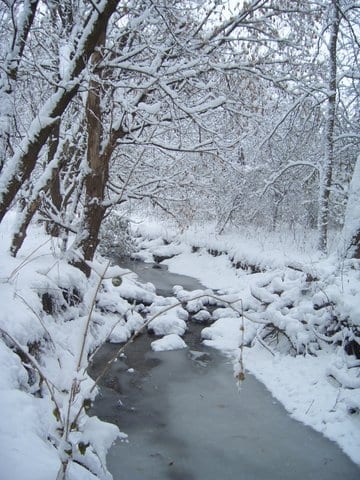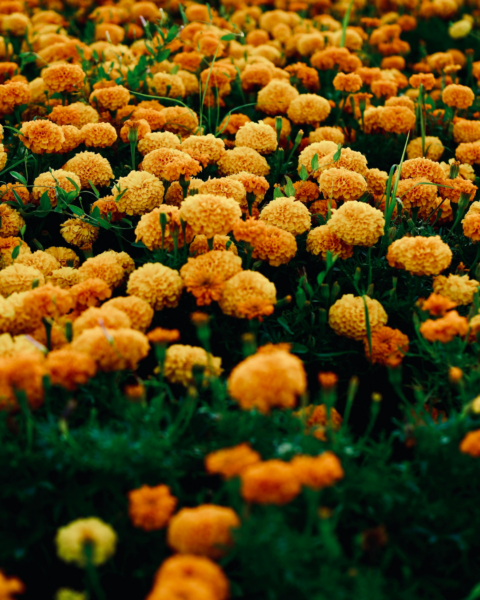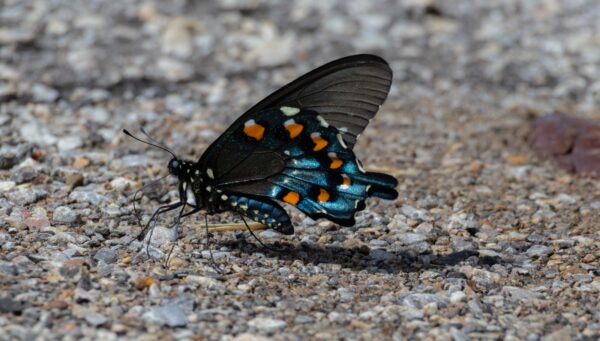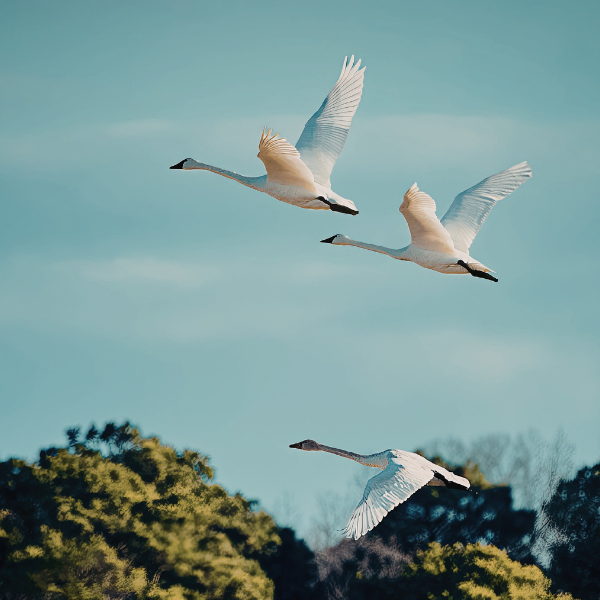I’m delighted to share another beautiful submission to the Monk in the World Guest Post Series from the community. Read on for Michelle Kobriger’s reflection on the artist and beginning again.
 Winter came on hard and fast this year, the colorful autumnal display fading quickly to brown. Days of wind and rain stripped the trees, carpeting my favorite woodsy trail in a thick layer of crunchy leaves. Tromping down the path a day after heavy rains, showers of acorns plopped to the ground like fat raindrops as squirrels scurried to gather the bountiful harvest. I don’t know what it would be like to live in a climate of perpetual green. I’d miss the changing seasons — earth’s way of reminding us life is cyclical, change is constant, routines are meant to be adjusted.
Winter came on hard and fast this year, the colorful autumnal display fading quickly to brown. Days of wind and rain stripped the trees, carpeting my favorite woodsy trail in a thick layer of crunchy leaves. Tromping down the path a day after heavy rains, showers of acorns plopped to the ground like fat raindrops as squirrels scurried to gather the bountiful harvest. I don’t know what it would be like to live in a climate of perpetual green. I’d miss the changing seasons — earth’s way of reminding us life is cyclical, change is constant, routines are meant to be adjusted.
The path of an artist and monk in the world asks us to live close to the earth with reverence for God’s creation; appreciating earth’s wisdom and the gifts she offers to nourish, teach, and delight. In winter, she offers an invitation to slow down; take time to rest and regroup. For me, it’s a time to revel in steamy mugs of tea, long hot baths, and a crackling fire in the fireplace with our cat Benny cuddled beside me. A time to delight in the red flash of cardinals in the birch tree, bare branches transformed to crystalline sculpture, and snowflakes glittering like fairy dust in frigid air.
In my studio, winter affords time to take stock of unfinished projects and abandoned ideas, mindful of Saint Benedict’s advice — I wonder if he was thinking of artists when he said, “Always we begin again.” I wonder if a long deep sigh preceded those words, if they were accompanied by a patient smile, or if there was a hint of exasperation because artists can be so mercurial, so messy: resisting structure, questioning the status quo, asking why, what if, and breaking rules. Good intentions toward discipline and daily practice go up in smoke when the Muse crooks her finger, whispering your name
You might end up with a studio splattered in ink, or a kitchen awash in cake batter and mounds of dirty dishes. There might be stacks of unfinished canvases, half-finished manuscripts, and surfaces littered with the tools and supplies you purchased after a workshop but forgot how to use. Maybe a fabulous dessert recipe destroyed your good intentions toward healthier eating. I like to believe Benedict understands that no matter how many times we try to begin again, the discipline of a daily practice can devolve into an exercise in cat-herding as competing demands for time and attention tug us in different directions. He kindly offers his rule to bring us back on course — again, and again.
In summer, I’m easily distracted by calls to be outdoors. Living in Wisconsin, you can’t help but develop a profound appreciation for the loveliness of warm sunny days. The long hours of daylight call me outside for morning walks and evening walks, followed by strolls through the garden to watch fireflies winking in the bushes. The calendar fills with travel and social events and I lose my place with creative projects. I’m always a little relieved when hints of yellow ochre mute the deep blue-green hues of the summer tree canopy. When the red and orange tones appear and the farmers market bursts with the fullness of the harvest, it’s time to take a deep breath and remember — not only is it okay to begin again, it’s expected and encouraged.
The monk is called to practice radical hospitality — a rule we can apply to the more undisciplined aspects of our bohemian nature.
We’re often the ones standing on the edges where we can see the wider view or the nuanced shades of a situation. We tend to listen more than we speak — but we aren’t afraid to ask questions, or question our assumptions.
The artist’s eye, attuned to the myriad grey tones in pebbles on the shoreline might notice the drooping shoulders and the brave smile that fails to light the eyes of a friend in need of encouragement.
The artistic traits resulting in failure at discipline help us follow Spirit’s nudges to divert from the usual route — nudges that might lead to someone needing a kind word, a bit of advice, or a helping hand. Adjustments to the day’s schedule can always be made when a friend needs help.
I like to think Benedict sees the positive side of our unconventional traits, encourages us to welcome and appreciate them, and congratulates us for the courage to show up for our work.
When we give ourselves permission to begin again, we recognize the value of process over end product and affirm that time spent outside the studio is fundamental to our process. Every season comes with its own brand of magic. Our work is to bring presence to the world we inhabit — in all its beauty and tragedy — to see all the colors in the sunset, hear every note in the birdsong, feel the love and despair of those who walk with us in life.
Then with hands, heart, the tools of our craft, and the grace to begin again, we offer a response.
 Michelle Kobriger is a metalsmith and mixed-media artist. At her home in Waukesha, Wisconsin, cooking, gardening, and homemaking offer endless opportunity for creative expression in the spirit of Oscar Wilde’s words: “Life has been your art. You have set yourself to music. Your days are your sonnets.”
Michelle Kobriger is a metalsmith and mixed-media artist. At her home in Waukesha, Wisconsin, cooking, gardening, and homemaking offer endless opportunity for creative expression in the spirit of Oscar Wilde’s words: “Life has been your art. You have set yourself to music. Your days are your sonnets.”



